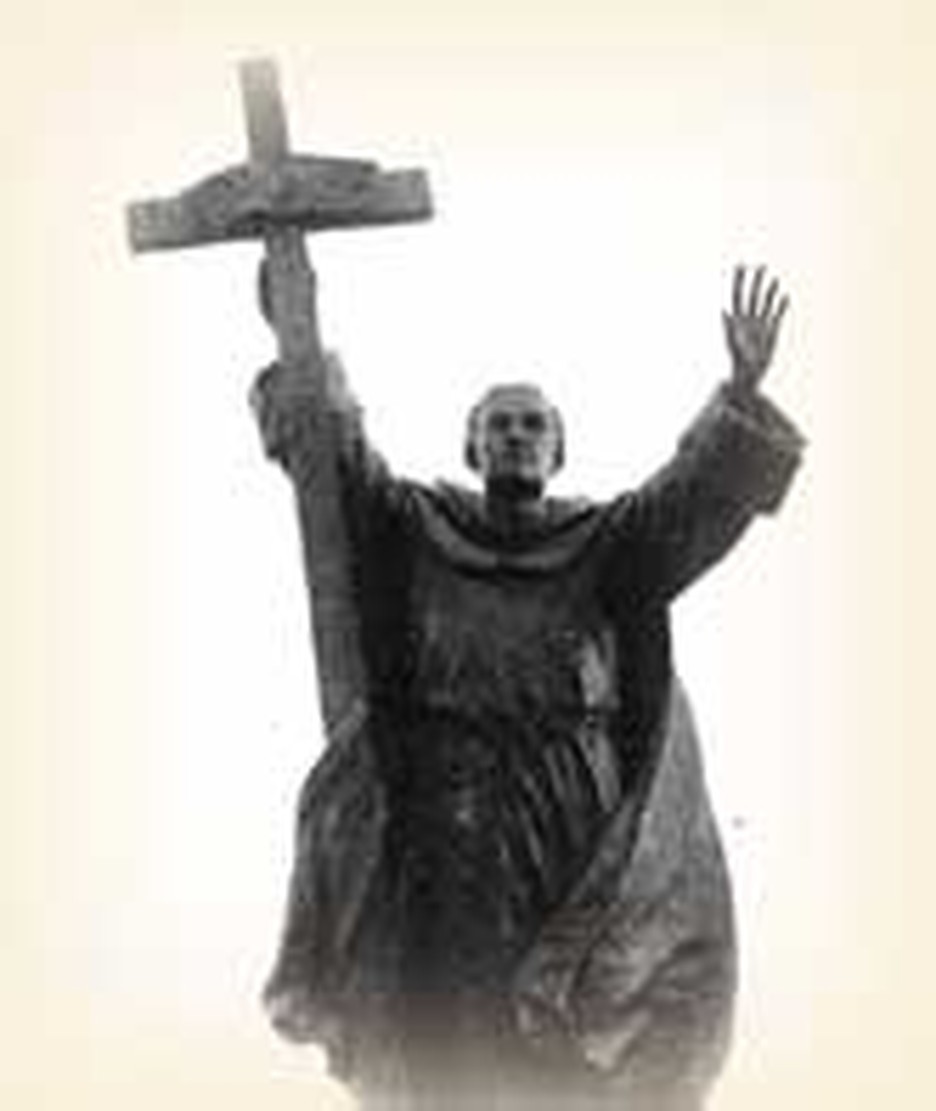
Father Junipero Serra reread the words he had just written. "Thank God I arrived the day before yesterday, the first of the month, at this port of San Diego, truly a fine one..." He told of difficulties the Spanish ships had suffered and noted that there were many Indians in this area. He closed his letter, emphasizing his purpose in California: "From this port and intended mission of San Diego, in North California, third July, 1769."
Two years before, the King of Spain had banished the Jesuits from his lands. This left several unattended missions in Baja, California. The Franciscans were told to take them over. Father Junipero Serra headed that mission. Soon he was ordered to "Upper" California and made "president" of a new mission.
Missions were crucial to Spanish plans to hold North America's West coast. Spain was unable to appoint many men to the region, which the Russians threatened to occupy. By converting the Indians and bringing them under church authority, Spain hoped to keep the conquered population quiet.
Serra was a key player in this strategy. Just five feet two inches tall, he dominated men by force of character and great learning. He had been a professor before volunteering for mission work in the New World. Years of experience among the natives of Mexico equipped him for leadership in California. Iron-willed, he made it his motto to "Always go forward and never turn back." He forced his body forward, despite illness, chest pains and a leg that remained permanently ulcerated after an insect bite. In addition to these unavoidable pains, he also practiced "mortifications," whipping and burning himself and wearing heavy shirts with sharp wires that pressed against his skin. He believed such actions would help him become more holy.
On July 16, 1769, Father Serra officiated as priest at the founding of San Diego. The city was founded on a hill chosen for its commanding view of Mission Valley. After a solemn mass, Father Serra, dedicated the mission to God's glory. He also dedicated the military settlement which would protect the mission. Mission and fort were named in honor of a saint.
Before his death, Serra established eight other California missions in a string that would become twenty-one stations long. These Spanish settlements were eventually linked together by a road called El Camino Real (The Royal Road).
The Indians were suspicious of the mission. They burned one of its early buildings and killed Father Luis Jayme who walked out the door with outstretched arms, saying, "Love God, my children." Jayme's lifeless body was found the next day. Father Serra said, "Thanks be to God!" Now that the land had been watered with martyr blood, conversion of the Indians would succeed.
Spanish mission methods were stern. Many Indians were forced to convert. Once baptized, they came under the authority of the church as if they had taken vows. For all practical purposes, they were slaves. They could be whipped, shackled and imprisoned for disobedience. Those who fled were hunted down. One of the Spanish priests wrote that not many Indians survived more than ten years of mission life.
Resources:
- Daniel-Rops, Henri. The Heroes of God. Garden City, New York: Doubleday, 1965, 1958.
- "Serra, Junipero." Encyclopedia of American Biography. Edited by John A. Garraty. New York: Harper and Row, 1974.
.jpg)

.jpg)
